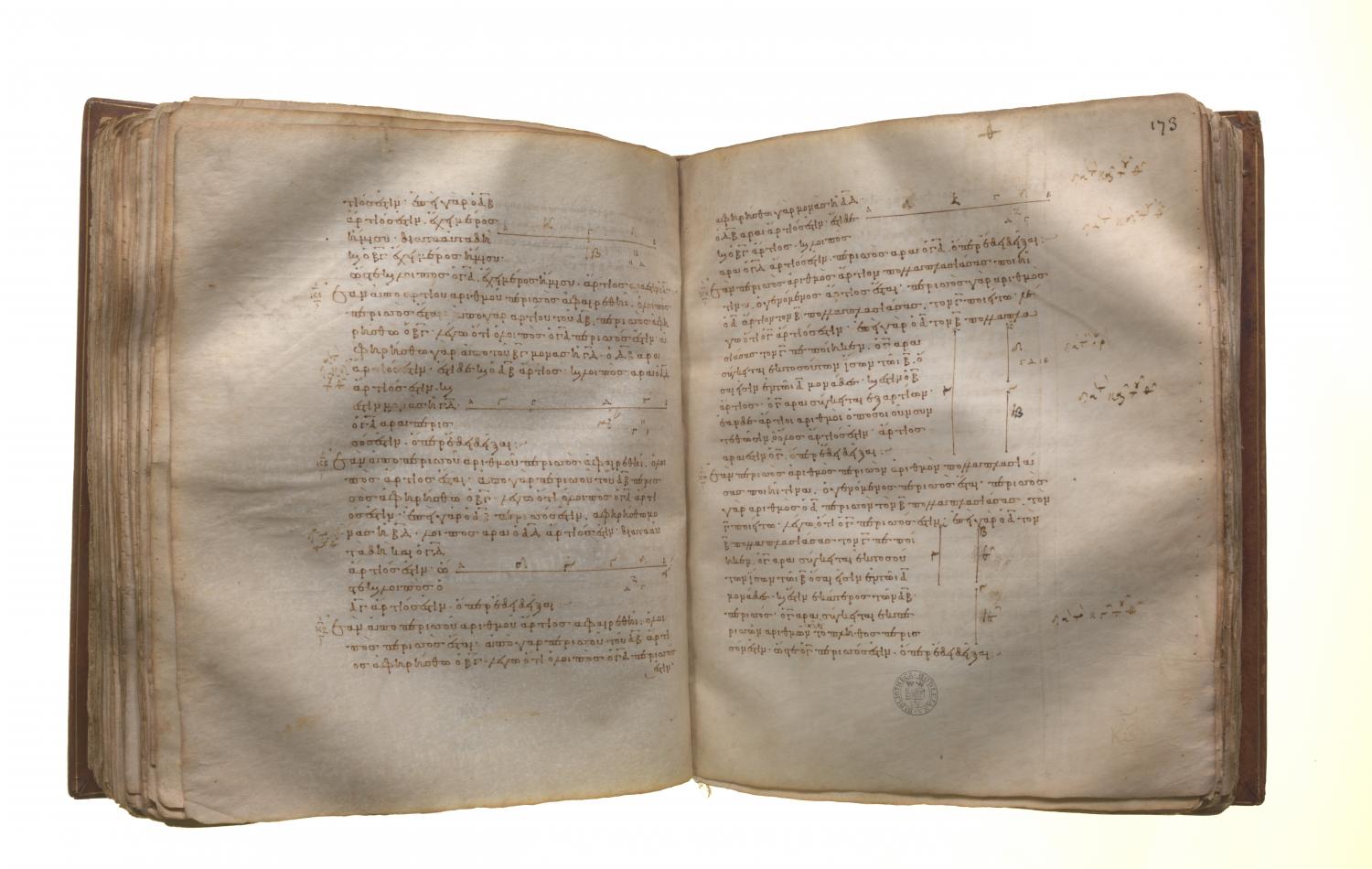Translations
Ἐὰν περισσὸς ἀριθμὸς ἄρτιον πολλαπλασιάσας ποιῇ τινα, ὁ γενόμενος ἄρτιος ἔσται. Περισσὸς γὰρ ἀριθμὸς ὁ Α ἄρτιον τὸν Β πολλαπλασιάσας τὸν Γ ποιείτω: λέγω, ὅτι ὁ Γ ἄρτιός ἐστιν.Ἐπεὶ γὰρ ὁ Α τὸν Β πολλαπλασιάσας τὸν Γ πεποίηκεν, ὁ Γ ἄρα σύγκειται ἐκ τοσούτων ἴσων τῷ Β, ὅσαι εἰσὶν ἐν τῷ Α μονάδες. καί ἐστιν ὁ Β ἄρτιος: ὁ Γ ἄρα σύγκειται ἐξ ἀρτίων. ἐὰν δὲ ἄρτιοι ἀριθμοὶ ὁποσοιοῦν συντεθῶσιν, ὁ ὅλος ἄρτιός ἐστιν. ἄρτιος ἄρα ἐστὶν ὁ Γ: ὅπερ ἔδει δεῖξαι.
If an odd number by multiplying an even number make some number, the product will be even. For let the odd number A by multiplying the even number B make C; I say that C is even. For, since A by multiplying B has made C, therefore C is made up of as many numbers equal to B as there are units in A. [VII. Def. 15] And B is even; therefore C is made up of even numbers. But, if as many even numbers as we please be added together, the whole is even. [IX. 21]
